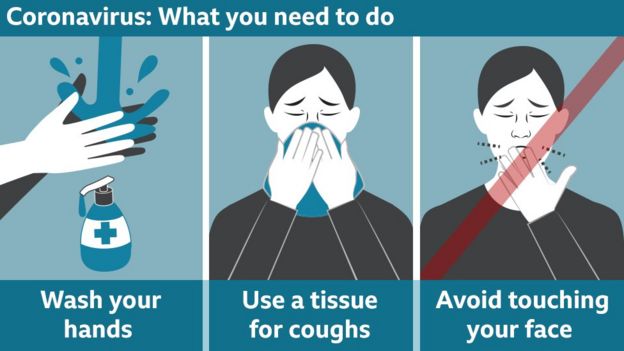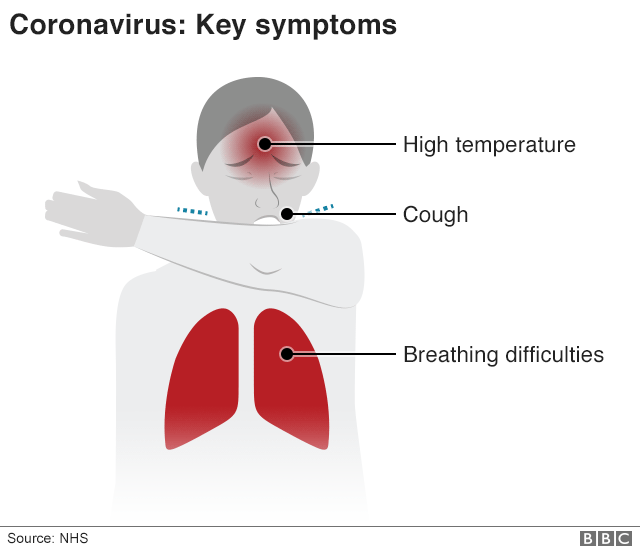What is self-isolation?
Self-isolation means cutting yourself off from the rest of the world.
You need to stay at home, not go to work, school or other public places, and avoid public transport or taxis, says Public Health England.
"Common-sense" steps include staying in a well-ventilated room with a window that can be opened and keeping away from other people in your home.
Ask for help if you need groceries, other shopping or medication.
It's OK to have friends, family or delivery drivers drop off supplies to get you through.
But you shouldn't have any visitors, PHE says. You can have deliveries left on the doorstep.
Do I need to self-isolate?
From Friday, everyone with flu-like symptoms - defined as a fever of above 37.8C or a persistent cough - is being asked to stay at home for at least seven days.
Anyone who has travelled to an affected area, or who has been in close contact with an infected person, had already been asked to self-isolate for 14 days.
Spending 15 minutes within 2m (6ft) of someone with the virus, or having face-to-face contact, is judged as close contact and a significant risk.

Advice for people who have travelled back to the UK from the main affected areas and some other countries has been issued by the government. Full details of the countries concerned and whether you need to self-isolate are available here.
Patients with mild symptoms are being asked to self-isolate at home. But people are being advised not to ring NHS 111 or their GP to report their symptoms unless they are worried.
The Covid-19 disease can cause a fever, cough and breathing problems. It takes five days on average for people to start showing the symptoms.


What if someone self-isolating shares a home?
If you are self-isolating and share a kitchen, try to avoid using it when other people are there and take your meals back to your room to eat. Clean all the surfaces at home with household cleaning products daily.
Although you might not be able to entirely separate yourself from family members or flatmates, the advice is to limit contact as much as possible.
If possible stay at least 2m (6ft) from other people you live with and sleep alone. Keep away from vulnerable people.
People living with someone in isolation should wash their hands often, using soap and water for at least 20 seconds - especially after coming into contact with them.
You shouldn't share towels, toiletries or other household items with someone in isolation and they should have a separate bathroom. If that is not possible, the isolated person should use the bathroom last, cleaning it thoroughly afterwards if they are able.
Any rubbish that the isolated person has been in contact with should be double-bagged and kept. If the person tests positive, you will be told what to do with their waste.
Comments
Post a Comment